Date: Thu 19 Dec 2019
Matching Commentaries:
Commentary for Exeter Riddle 88
We have a guest translator for this riddle: the one and only
Denis Ferhatović. Denis is associate professor of English at Connecticut College and an enthusiast when it comes to poetic creativity. He has brought some of this creativity to the below translation, which I hope you enjoy reading as much as I have!
Original text:
Ic weox þær ic s[……………………
……..]ond sumor mi[…………….
……………]me wæs min ti[…..
……………………
5 …]d ic on staðol[………………..
……….]um geong, swa[……….
……………..]seþeana
oft geond [………………..]fgeaf,
ac ic uplong stod, þær ic [………]
10 ond min broþor; begen wæron hearde.
Eard wæs þy weorðra þe wit on stodan,
hyrstum þy hyrra. Ful oft unc holt wrugon,
wudubeama helm wonnum nihtum,
scildon wið scurum; unc gescop meotud.
15 Nu unc mæran twam magas uncre
sculon æfter cuman, eard oðþringan
gingran broþor. Eom ic gumcynnes
anga ofer eorþan; is min agen bæc
wonn ond wundorlic. Ic on wuda stonde
20 bordes on ende. Nis min broþor her,
ac ic sceal broþorleas bordes on ende
staþol weardian, stondan fæste;
ne wat hwær min broþor on wera æhtum
eorþan sceata eardian sceal,
25 se me ær be healfe heah eardade.
Wit wæron gesome sæcce to fremmanne;
næfre uncer awþer his ellen cyðde,
swa wit þære beadwe begen ne onþungan.
Nu mec unsceafta innan slitað,
30 wyrdaþ mec be wombe; ic gewendan ne mæg.
Æt þam spore findeð sped se þe se[…
………..] sawle rædes.
Translation:
I grew where I s[……………………
……..]and summer mi[…………….
……………]me was my ti[…..
……………………
…]d I in the position[………………..
……….]um young, so[……….
……………..] nevertheless,
often throughout [………………..]fgave,
but I stood straight where I [………]
and my brother. We were both hardened.
Our shelter was worthier, adorned more highly,
as the two of us stood on top. The forest always protected us,
on dark nights, its helm of arboreal branches made a shield
against downpours. The Almighty molded us.
Now our kinsmen, our younger brothers
must come after us, and snatch away
our shelter. I am the only human individual
left in the world. My own back is
murky and marvelous. I stand on wood,
on the border of the shield/on the edge of the table/on the margin of the page.(1)
Mi hermano no está aquí.(2)
But I have to guard the position, brotherless
on the border of the shield/on the edge of the table/on the margin of the page.(3)
I must stand unmoved.
No sé dónde mi hermano debe habitar,(4) possessed by men, their property
in what quarter of the world
he who used to shelter high by my side.
We two were one when waging war.
Yet neither could make his valor known
as we were both no good when it came to battle.
Now some degenerates slit my insides,
tear into my abdomen. I cannot escape.
Following these traces finds abundance who […
………..] advantage to the soul.
Click to show riddle solution?
Antler, Inkhorn, Horn, Body and Soul
Notes: This riddle appears on folios 129r-129v of The Exeter Book.
The above Old English text is based on this edition: Elliott van Kirk Dobbie and George Philip Krapp, eds, The Exeter Book, Anglo-Saxon Poetic Records 3 (New York: Columbia University Press, 1936), pages 239-40.
Note that this edition numbers the text Riddle 84: Craig Williamson, ed., The Old English Riddles of the Exeter Book (Chapel Hill: University of North Carolina Press, 1977), pages 116-17.
Translation Notes:
(1) and (3) Please see the commentary for more information regarding this multiple translation.
(2) and (4) Likewise, an explanation of the parts in Spanish, and my reason for their use, can be found in the commentary.
Tags:
anglo saxon
exeter book
riddles
old english
solutions
riddle 88
denis ferhatovic
Related Posts:
Exeter Riddle 60
Exeter Riddle 72
Exeter Riddle 83
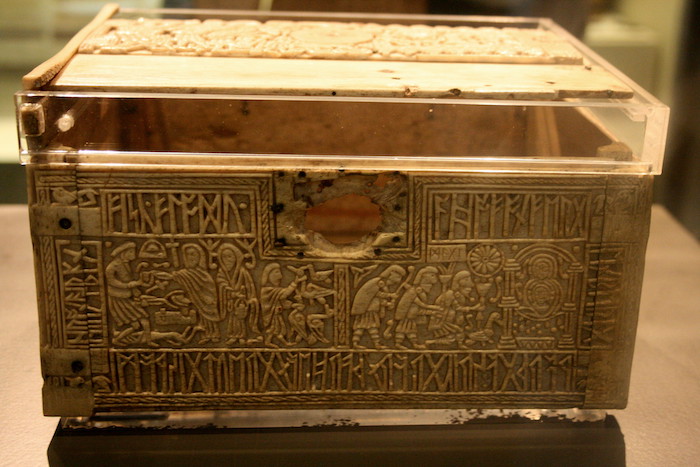
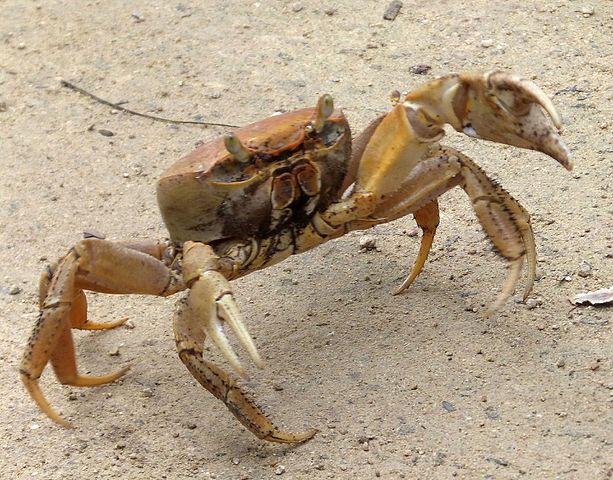
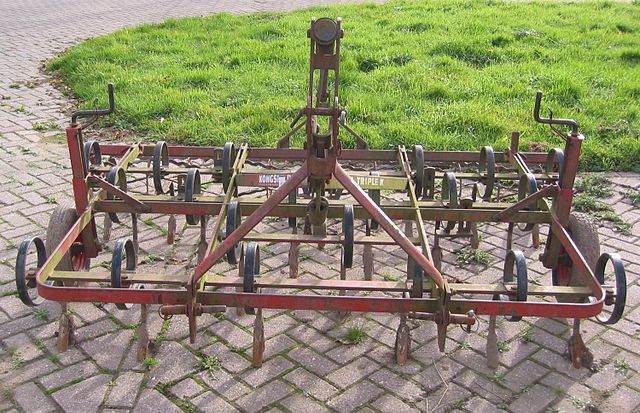
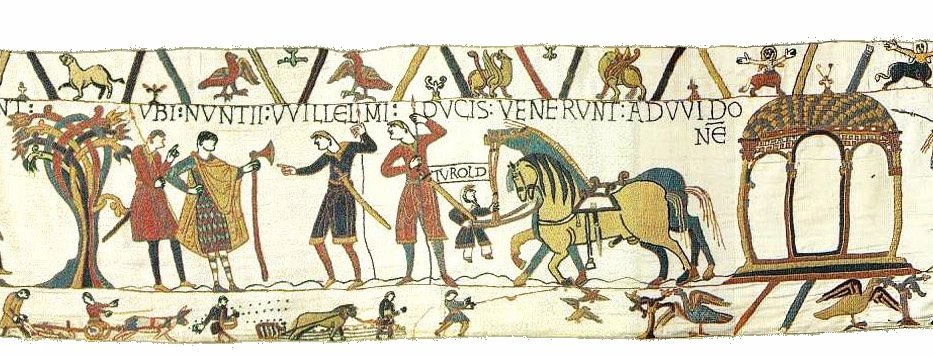
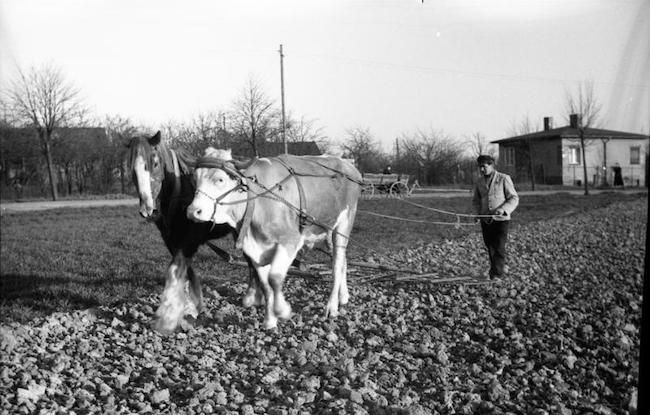
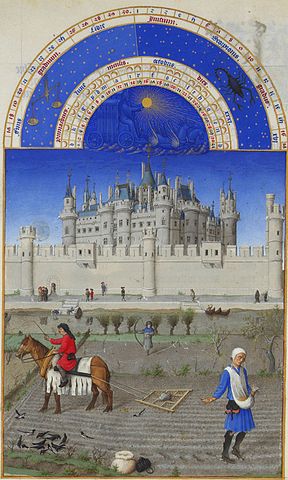
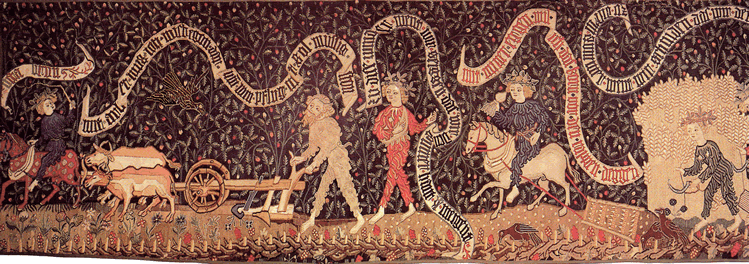


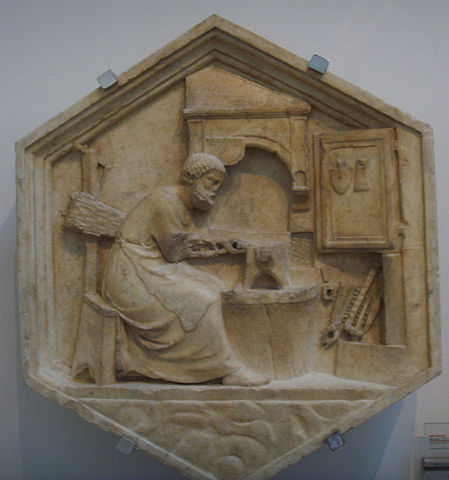
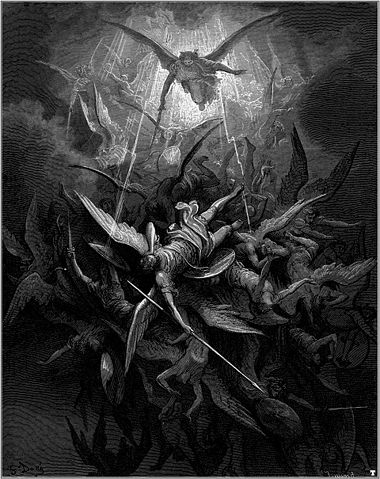
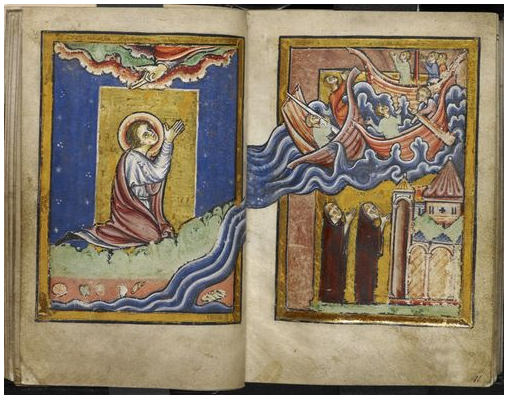
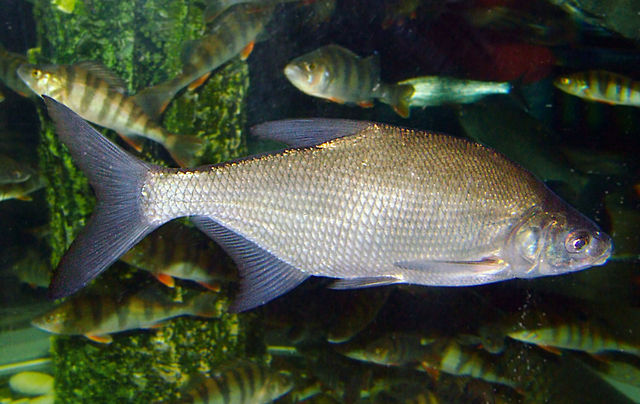
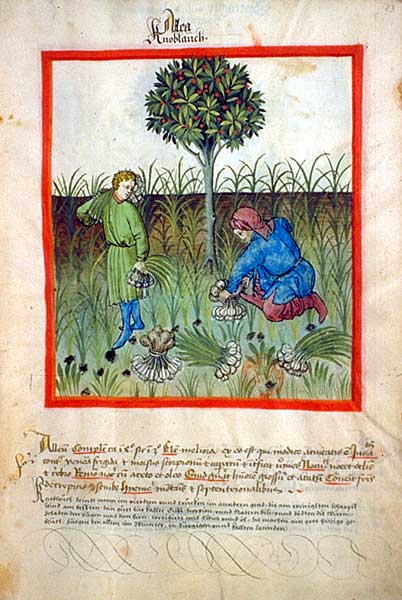
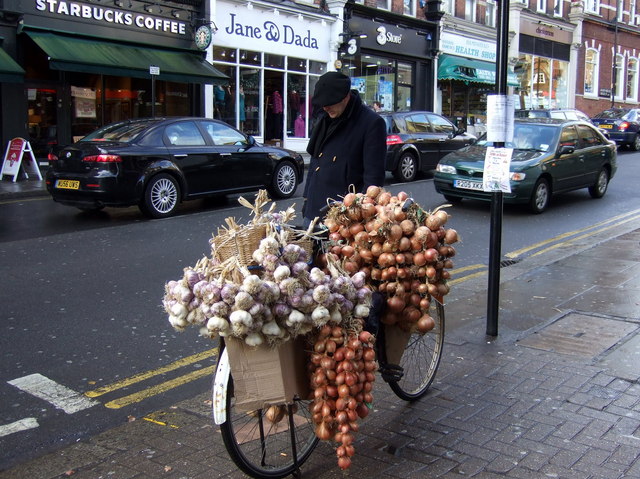
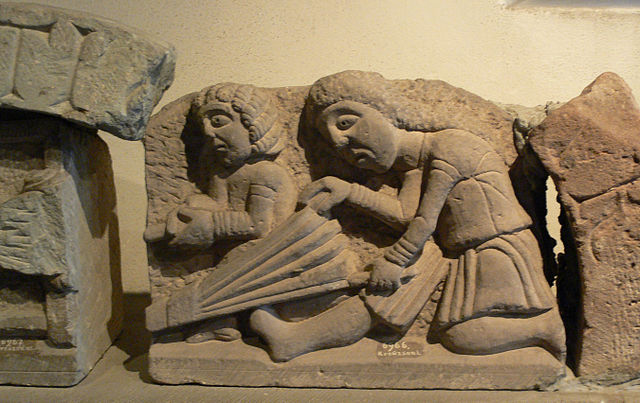
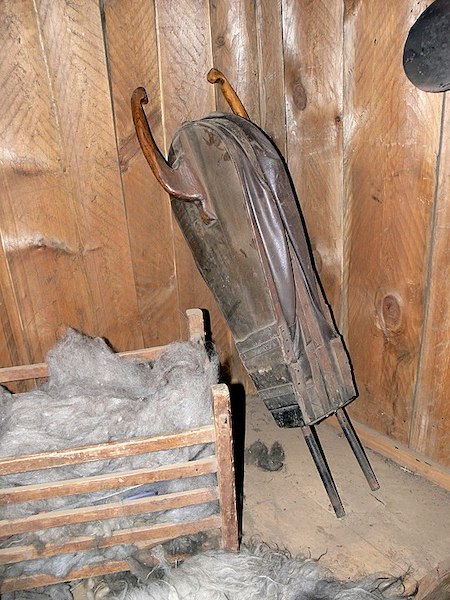
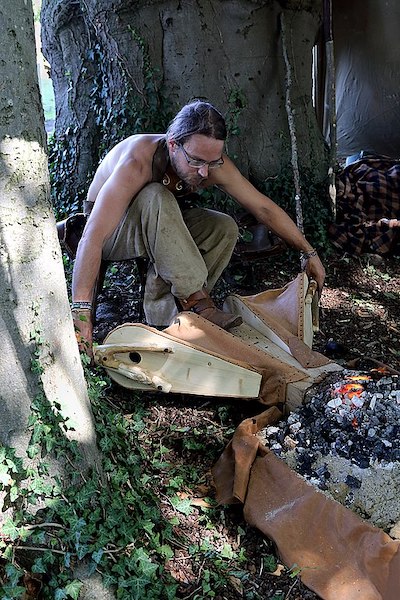


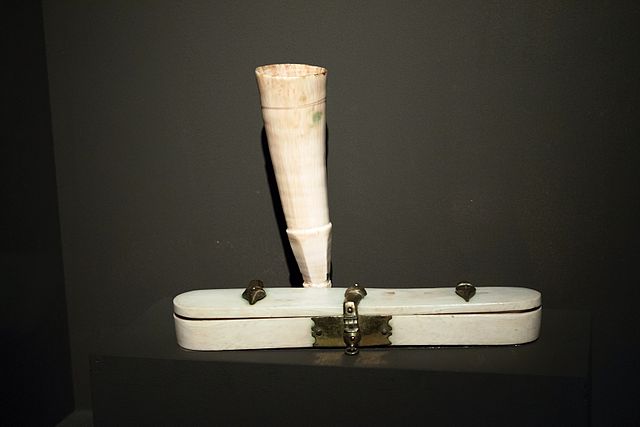
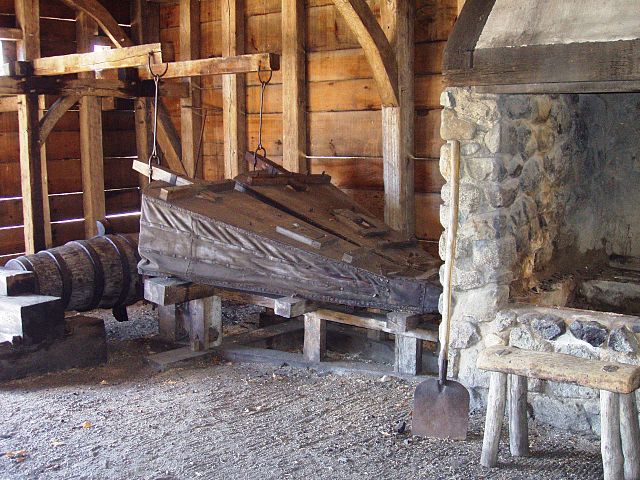
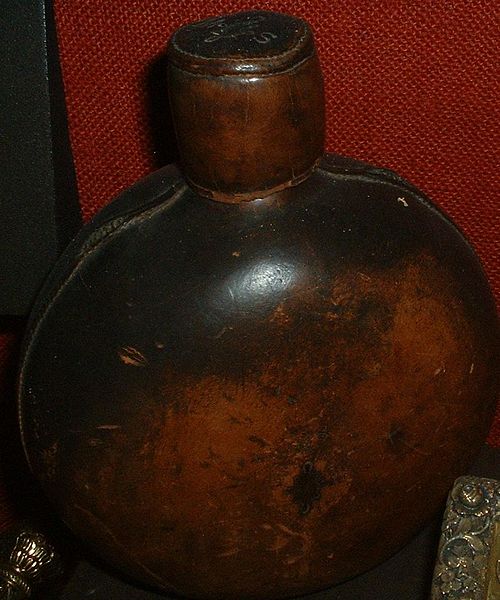
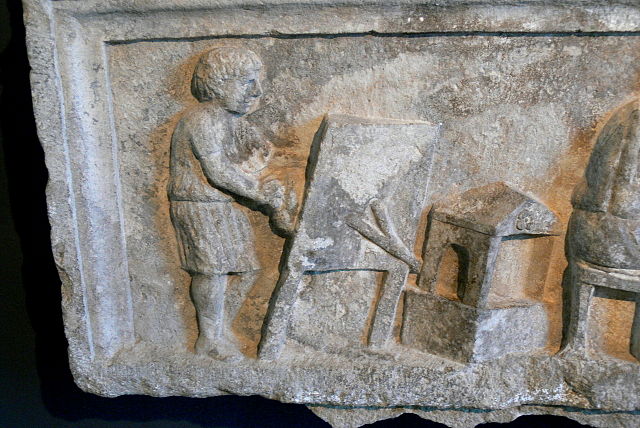
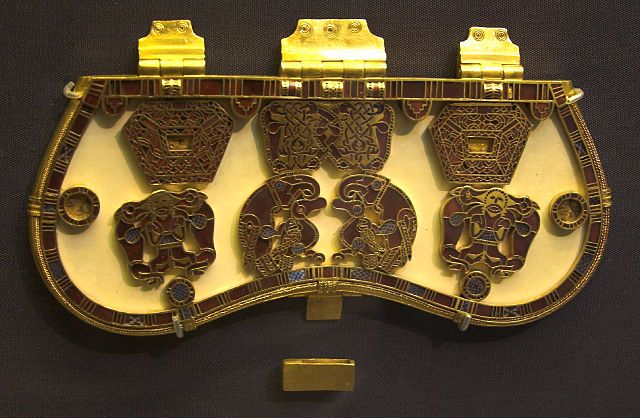
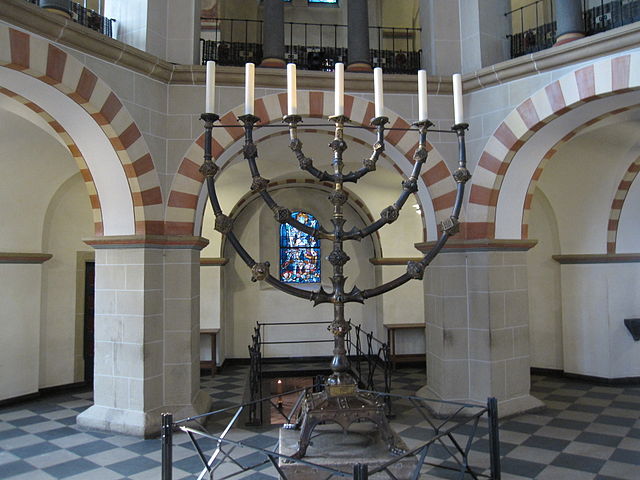
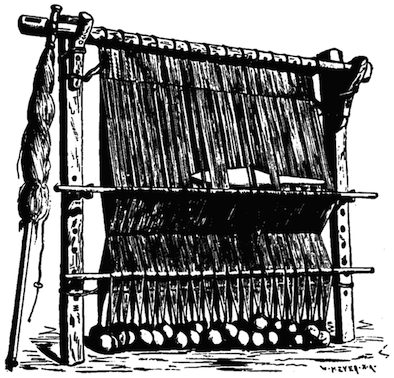
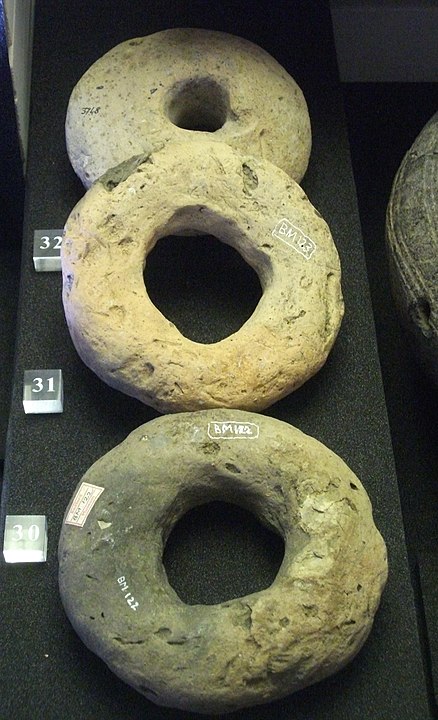
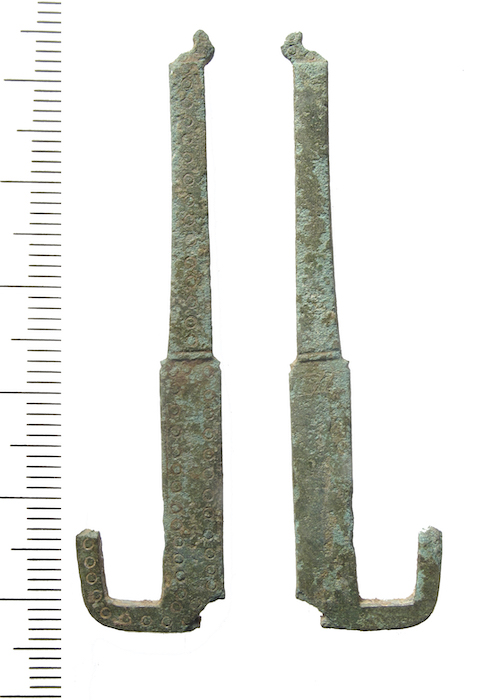

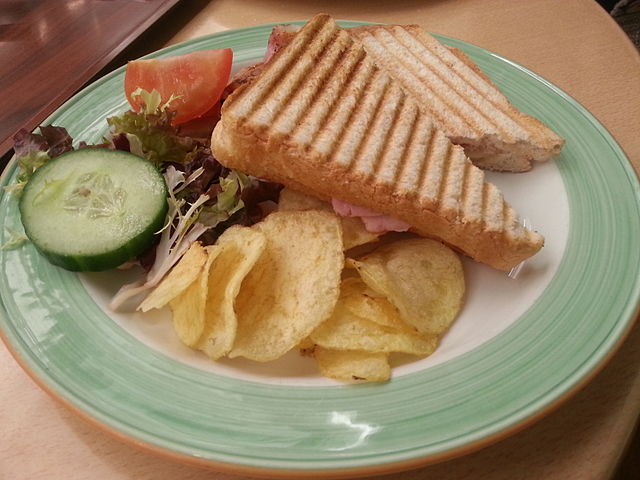
Commentary for Exeter Riddle 81
MEGANCAVELL
Date: Mon 01 Oct 2018Matching Riddle: Exeter Riddle 81
This week’s commentary post is once again by Judy Kendall, Reader in English and Creative Writing at Salford University:
“Weathercock” is the generally accepted solution to this riddle, although alternatives include “ship” and “visored helmet.”
A photo of the reconstructed Sutton Hoo Helmet taken by Judy Kendall.
We know weathervanes existed long before this riddle was in circulation. Indeed, references have been made to weathervanes mounted on buildings centuries earlier, in the 1st-century De Architectura, by the Roman author and architect Vitruvius. However, the idea of a weathercock is more recent. The oldest surviving weathercock is the early 9th-century Gallo di Ramperto in the Museo di Santa Giulia, Brescia, Italy:
Photo (by RobyBS89) from Wikimedia Commons (public domain).
And the 9th century is when Pope Nicholas decreed that all church towers bear a “tower-cock” as a symbol of vigilance, and perhaps a reminder of Peter’s three times denial of Jesus before the cock crew.
This relatively recent arrival of the weathercock is also suggested by its etymology. Craig Williamson reports the earliest Germanic word for “weathercock” as 12th-century, no known Latin word before the 13th century, and the first English occurrence in the 13th century (1977, pages 361-2). So, while weathervanes are more ancient, this riddle refers to a new “weathercock” technology. Hence, the opening emphasis on the cock’s physical attributes and construction.
In a number of ways, this riddle falls into two halves. The tone and content of the second half of the riddle contrasts markedly with that of the first. It is as if the weathercock itself has turned in the wind, with a distinctive shift in rhythm and sounds. The first half reads jerkily and is almost clumsy or awkward, like the uncomfortable circumstances of the riddle’s subject – unable to move of its own volition, with swollen breast and throat and stretched tail and neck all building towards a picture of unpleasant prison-like constraint.
John Porter translates the first line’s byledbreost, belcedsweora as the wonderful and very earthy “bulge-breasted, belch-throated” (page 111). I adapt this to “bulging-breasted, big-throated,” so as to emphasise that sense of discomfort more. For similar reasons I select “spine” not “back” as a translation of line 4’s hyrcg, evoking a hard, bony length rather than the broader, flatter attributes of a “back.”
I also opt for a “stretched-out” neck rather than one that is “protruding,” “prominent,” “long,” or, in Porter’s case, the unusual but perhaps slightly too beautiful “sheer.”
Such emphasis on discomfort contrasts with Patricia McCarthy and Kevin Crossley-Holland’s translations. In The Word Exchange, McCarthy uses line 2 and 4 to express exuberance: “I’m blessed with a noble head, swaying tail” and “I’ve a grand long neck” (page 503). In Crossley-Holland’s collection, his weathercock takes time to boast of his “fine head,” a double entendre possibly hovering here (page 75). But a sense of discomfort is more in tune with earlier conventions, as Patrick Murphy notes:
“A rapid-fire listing off of sufferings [is] strongly reminiscent of patterns we see elsewhere in oral traditional riddles … [I]t shows up again and again in the Exeter Book, where innumerable suffering riddle creatures endure the process of manufacture from raw material to useful product” (page 224).
In the first half of the riddle, the cock’s suffering, “stretched-out” and “elevated,” is passive. External forces have placed it where it is.
This strong sense of containment and confinement informed my decision to make use of the doubly-binding effect of alliteration and end-rhyme in the riddle’s first half. However, the demands of these end-rhymes have resulted in the somewhat compromised translation of “foot” as “leg,” so any improvements gratefully received….
There is an inescapable innuendo in sag[ol] on middum, whether it be seen as a “rod,” “pole,” “shaft,” “stake” or a “stick” (poor cock). I went for “stake” since this evokes both impalement and punishment at the stakes, and allows it to provide a somewhat hidden link to the last line’s “misfortune” (i.e. “stakes of fortune”). This fits, in reverse, with the incipient wordplay of the last line’s wonsceaft (misery or misfortune), which holds within its bounds the word sceaft (pole). So is that uncomfortable stick up the cock’s middle connected to its misery, becoming unstuck in the last line ( – thanks to Phyllis Wick of the Old English Companions for the “stick”/“unstuck” wordplay)? It certainly brings the attention back to sag[ol], surely a key indication of the weathercock’s identity.
The poem’s hinge at line 6 is not only marked with significant changes in rhythm, sound patterns and tone, but with changes in syntax and sentence parts, and an increase in direct action. The preponderance of nouns in the first half of the riddle transform into a series of active, aggressive verbs. The cock remains passive but, as if turning on its stake, is actively attacked with very physical misfortunes. The staccato list of body parts is replaced by a mellifluous syntactical flow through lines that articulate an apparently continuous stream of troubles. This is particularly evident in line 7. Hence my choice in modern English of internal rhymes, “strain” both prefiguring and looping into the streaming rain of line 8. Together they evoke both that inflexible pole up the cock’s middle, and the fluid non-stop battering of heavy rain.
Further actions perpetrated upon the bird are listed in lines 8-10, with the role of the weather definitively established in the references to haegl, hrim, [f]orst and snaw in lines 9 and 10.
While the lines become both smoother and more active, they also visibly recede in time for the modern reader. The gaps in the manuscript mean we are uncertain if the frost is freezing or falling – [fr]eoseð or, as Frederick Tupper suggested, [hr]eoseð (page 220)? It is true that “hreoseð” does not appear near frost in the Old English corpus. However I prefer it, because it avoids the tautological “freezing frost” (albeit a tautology attested elsewhere in the OE poetic corpus; see Maxims I, line 71a: Forst scealfreosan “Frost must freeze”) (full translation here).
McCarthy, Crossley-Holland and Porter all avoid that tautology too, although none of them opt for “fall,” presumably for the same reasons as me – that it is hard for the modern mind to accept frost as falling. McCarthy goes for “coats,” and Crossley-Holland for “attacks,” but Porter’s choice, “settles,” is the neatest. It not only works as an ornamental alliteration with “snow,” but manages to retain the downward motion of “falls,” while avoiding the conflict with current scientific understanding of how frost is formed. However, because “settles” normally applies to snow, and snow is the next item described, I go for “grips.” This does not indicate downward motion but does evoke well the riddle’s opening emphasis on hard, difficult conditions.
The many missing parts of the last two lines of the riddle leave the translator and reader’s options open. Porter’s principle was “to translate only words which are entire and to omit unintelligible letters and groups” (page 8):
and frost settles, and snow falls
on me with my pierced belly, and I
my misery.
McCarthy and Crossley-Holland guess. Crossley-Holland, as if in response to the active and aggressive weathering the cock endures, refers to it as deliberately withholding action, the action being a reciprocal pouring out of misery:
snow half-hides me,
I must endure all this, not pour out my misery. (page 75)
McCarthy makes a much stronger allusion to song. Perhaps mimicking the trajectory of Riddle 7, her translation here ends with a reference to the bird’s call. The cockadoodledo-ing might also suggest betrayal, as in Peter’s denial of Jesus. This possible analogy with Peter or indeed with Christ’s passion has been noted by Williamson (2011, page 201):
snow buries me. I must hold up,
refrain from cockadoodledo-ing my misery. (McCarthy, page 503)
However, reference to the sound or crowing of the weathercock could also be an allusion to a peculiar feature of its construction. The 1340 weathercock on the spire of the Devonshire parish church of Ottery St Mary was designed to make use of sound in its measurement of the wind. Its hollow copper tubes are intended to whistle as air passes through them, although they are now blocked off for the sanity of the nearby residents.
My translation assumes that the missing parts of the riddle contain some reference to the weathercock’s function, namely its role as a device to measure the force and direction of the wind and weather that it confronts. To achieve this, I read the fragmented mæ, which Williamson notes is possibly followed by the letter “g” or “t,” as mæt (meted, appraised or measured). Such a reference acts as a final definitive clue, and it also fits the poem’s trajectory, since the bird’s function can only be carried out once it has been affected by the weather.
The bird’s passivity still remains. McCarthy’s bird “refrains,” Porter’s does “not” pour, and, while my cock’s movement allows measurement to take place, this movement is instigated not by the cock but by the wind. However, perhaps the cock can be seen as a more active figure. In the 10th century, Wulfstan of Winchester refers to the way a rooster on top of Old Minster at Winchester actively turns itself in wind,
Imperat et cunctis euectus in aera gallis
et regit occiduum nobilis imperium.
Impiger imbriferos qui suscipit undique uentos
seque rotando suam prebet eis faciem
(page 388, lines 199-202)
(Thus raised aloft this noble fowl commands all other birds and rules the western domain. It is eager to receive the rainy winds from all directions and, turning itself, it offers its face to them) (page 389).
Does the distinctive turn in the middle of the riddle suggest something of this, the lines, the syntax, and the bird itself, only becoming alive and sonorous in that interaction, however painful, with the wind? Or is it the case that, even if the cock can be considered as turning itself, the emphasis on action still lies elsewhere, with measurement of that turn taken not by the cock but by us, as observers, listeners, readers, riddle-solvers, whether we are aiming to assess the wind, a range of riddle solutions, or indeed the extent of turbulence and misery the bird in question suffers. The bird thus becomes a landmark, a wind-mark, and indeed a riddle mark, as Wulfstan also describes:
A longe adueniens oculo uicinus adheret,
figit et aspectum dissociante loco.
(page 389, lines 207-8)
(Someone coming from afar off fastens on it, once in its vicinity, with his eye and, though still far off, fixes his sights in that direction.) (page 389)
Now of course that someone is us – far distant into the riddle’s future. The new technology of the weathercock is now old, and the written riddle so worn that we can no longer make out all the words. We can’t really travel back there, weathercock or no. However, if we fix our sights upon that weathercock, fragmented though it is through the mists (or streaming rain) of time, we are able to guess at some of its features as we stare.
References and Suggested Reading:
Crossley-Holland, Kevin, trans. The Exeter Book Riddles. London: Enitharmon, 2008.
Harris, Alexandra. Weatherland: Writers and Artists under English skies. London: Thames & Hudson, 2016.
Maitland, Karen. “The Cockerel That Whistled.” The History-Girls Blogspot. 8 October, 2004.
McCarthy, Patricia. “Look at My Puffed-Up Breast.” The Word Exchange: Anglo-Saxon Poems in Translation. Edited by Greg Delaney and Michael Matto. London: W. W. Norton, 2012.
Murphy, Patrick J. Unriddling the Exeter Riddles. University Park, PA: Penn State University Press, 2011.
Needham, A. English Weathervanes: Their Stories and Legends from Medieval to Modern Times. London: Pryor, 1953.
Porter, John. Anglo-Saxon Riddles. Hockwold-cum-Wilton: Anglo-Saxon Books, 1995 and 2013.
Tupper, Frederick, Jr. Riddles of the Exeter Book. Boston: Ginn, 1910.
Vitruvius. On Architecture [De Architectura]. Edited and translated by Frank Grainger. 2 vols. Loeb Library Series. Cambridge, MA: Harvard University Press, 1931-34.
Williamson, Craig, ed. and trans. Feast of Creatures: Anglo-Saxon Riddle-Songs. University Park, PA: Penn State University Press, 2011.
Williamson, Craig. The Old English Riddles of the Exeter Book. Chapel Hill: University of North Carolina Press, 1977.
Wulfstan of Winchester. Preface to his “Life of St Swithun.” Translated by Michael Lapidge, in The Cult of St Swithun. Oxford: Oxford University Press, 2003.
Featured image at top of page (by Bill Nicholls) from Wikimedia Commons (license CC BY-SA 2.0)
Tags: anglo saxon exeter book riddles old english solutions riddle 81 judy kendall
Related Posts:
Commentary for Exeter Riddle 7
Exeter Riddle 81
Exeter Riddle 7